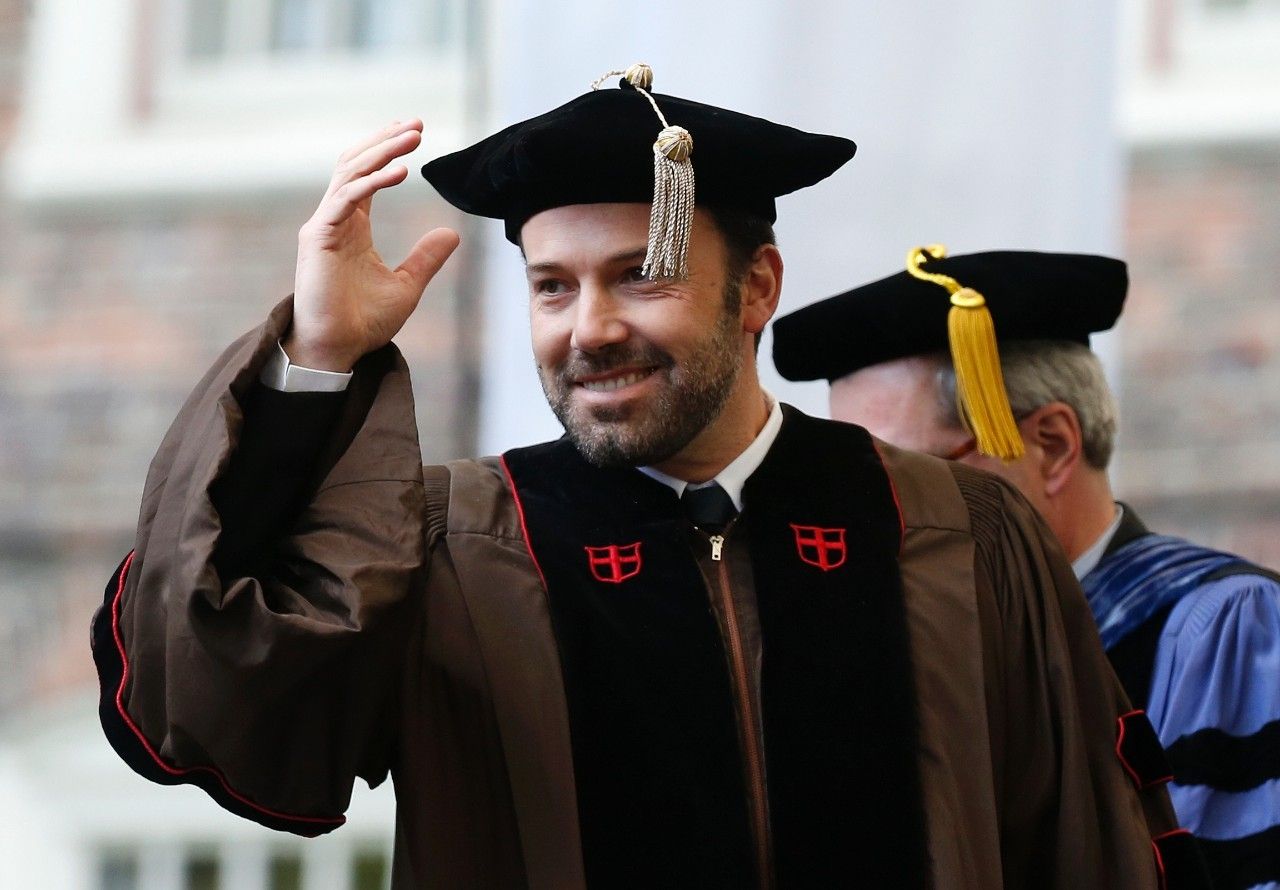If you’re reading this article, odds are you’re a college student. And if you’re a college student, you’re probably paying thousands of dollars in tuition annually while working hard to complete all of your required coursework to graduate with a degree. But, every year, hundreds of adults are awarded degrees from universities without completing the required coursework.
The degree that these adults are being granted differs from the one that you are in the process of earning. It is called an honorary degree, and it has a long history with many recipients.
What is an honorary degree?
An honorary degree is an academic degree, but it is one for which a university has waived requirements.
This means the recipient can obtain this degree without matriculating, taking any exams or living on campus. There are many types of honorary degrees that can be given out, but the most common one is a doctorate.
What is the history of the honorary degree?
The honorary degree is probably older than the university you attend. In fact, the first honorary degree was presented to Lionel Woodville in 1478. Woodville was a young bishop with high-up religious and royal connections. This made him the ideal man for Oxford University to kiss up to.
And so, Oxford sent someone to deliver a degree to Woodville. Woodville hadn’t completed Oxford’s academic requirements, but, with the presentation of this degree, he was declared the contemporary equivalent of a PhD. Just like that. Don’t you wish it was that easy?

Not long after Woodville received his degree, he went on to accept the offer of a position as the chancellor of the university. Since currying the favor of Woodville worked out well for them, Oxford began to offer more and more honorary degrees. The catch, of course, was that they were only offered to noblemen, who were expected to give back to the university in return.
The trend spread to other prestigious universities throughout Europe, eventually making its way to North America. Near the end of the seventeenth century, Harvard University was in the process of appointing an influential Puritan minister, Increase Mather. Shortly before promoting him, Harvard granted him a Doctor of Sacred Theology. Obtaining this degree back then usually took at least five years. Not for Mather, however; it didn’t take him any years at all. Sounds fair, right?
Which famous people have received honorary degrees?
A lot of famous people have been granted honorary degrees, and many of them received this award from multiple institutions.
Academy-Award winning actress Meryl Streep, for example, holds four honorary doctorates, three of which are from Ivy League universities: Harvard, Princeton and Yale. She recently received a Doctorate of Fine Arts from Indiana University at Bloomington. Meanwhile, she earned her own degree from Vassar College years earlier.
J.K. Rowling has received as many honorary degrees as she has written Harry Potter books; she has seven, which come from universities both in Europe and in the United States.
Oprah Winfrey has four honorary degrees. John Legend also has received honorary degrees. Magic Johnson got one, too. So did Robert De Niro. And Celine Dion. And Denzel Washington.
Even Kanye West, who has a famous rap album titled “The College Dropout,” was awarded a doctorate from the School of the Art Institute of Chicago. And ironically enough, Mark Zuckerberg, who famously dropped out of Harvard and created Facebook, was just awarded an honorary degree by Harvard when he gave the commencement address there this year.
What is the point of an honorary degree?
Maybe you initially thought that honorary degrees were given to the best academics and intellectuals. But, after looking at the type of people who frequently get them–actors, singers, celebrities–it is clear that an honorary degree really has little to do with academics at all. Granted, scholars make up a decent component of the recipients of honorary doctorates, but many of the people who receive these degrees have not contributed to academia or worldly knowledge in any substantial way. One thing the recipients do tend to have in common though—money. And lots of it.
If you look back at the history of how the honorary degree came to be, this makes sense. A school gives a wealthy star a piece of paper, and in return, they usually get a sizable donation or plenty of cheap publicity. Or sometimes they earn a future commencement speaker. Often they are granted the privilege of naming a program or building after the award recipient.
What can you do with an honorary degree?
You’re working hard to get your college degree for lots of reasons, including that it will help you get a better job and make you more knowledgeable in your respective field. But, does an honorary doctorate accomplish the same things?
The answer is no, for several reasons. First, this degree is more symbolic than functional. Someone who is given a piece of paper by an institution without actually taking the classes necessary to earn that degree is unqualified to discuss the field they received the doctorate in.
Also, many colleges discourage honorary graduates from adopting the prefix “Dr.” in front of their name. Numerous well-known recipients, however, have decided to go by the title of Dr. anyway. For example, Maya Angelou frequently referred to herself as “Dr. Angelou” despite not having an actual doctoral degree. But then again, she was granted more than fifty honorary degrees worldwide, so maybe she can be an exception.
Which schools give out honorary degrees?
While some schools see honorary degrees as worthwhile investments, other universities see them as a way to reward the wealthy for having money. Every school in the Ivy League grants honorary doctorates, except for Cornell. Other top universities that refuse to give out honorary degrees include Stanford, MIT and the University of Virginia. When Thomas Jefferson founded the University of Virginia, he banned honorary doctorates. This decision stemmed from his fear that they would be granted with political or religious motives instead of scholarly ones.
Many scholars rightfully are given honorary degrees. But, you can’t say that Jefferson was wrong in his prediction, either.


















[…] Honorary degrees from universities are meant to commend public figures — politicians, philanthropists, entrepreneurs, journalists and more — whose positive impact deserves recognition. […]